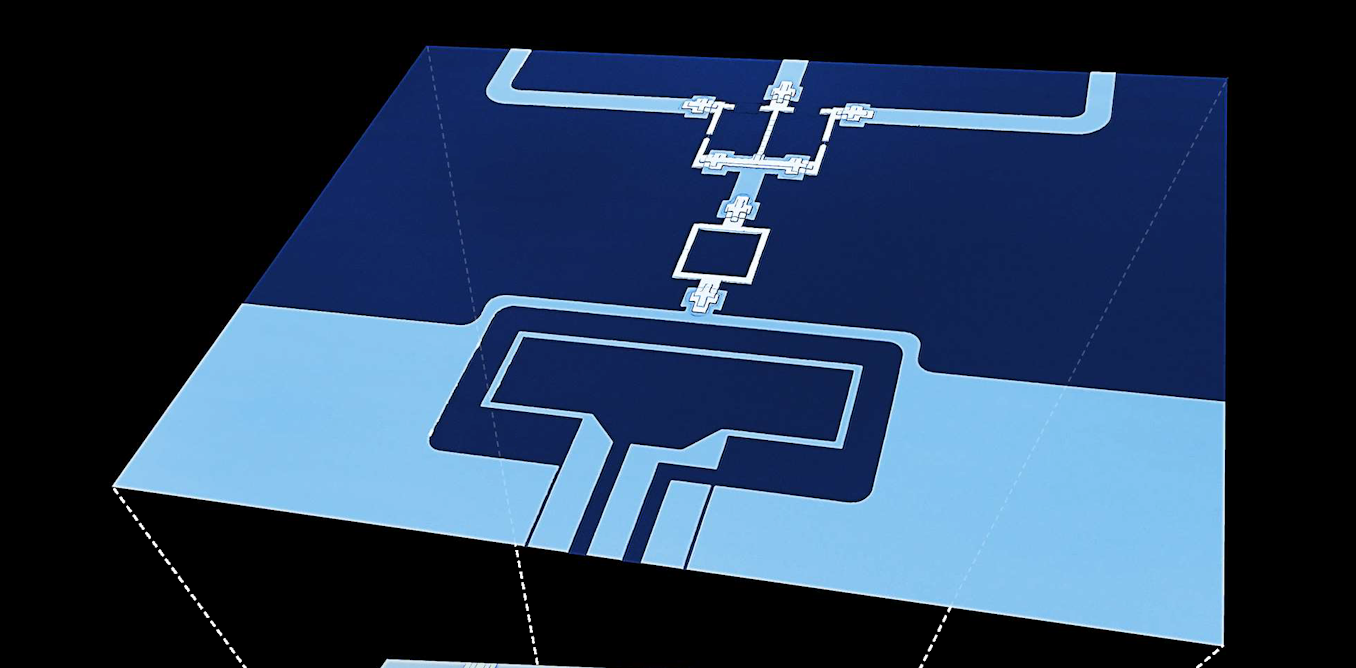Science
Nobel Prize in Physics Recognizes Pioneers of Quantum Technology

The 2025 Nobel Prize in Physics has been awarded to three scientists for their groundbreaking research in ultracold electronics, particularly in superconducting circuits. This pivotal work has significantly advanced the field of quantum technology, demonstrating that quantum effects can persist in large electrical circuits. The laureates, John Martinis, Michel Devoret, and John Clarke, have laid the foundation for practical applications of quantum computing, a technology that promises to solve complex problems across various fields including chemistry and cryptography.
Understanding Quantum Behavior
Quantum mechanics explains the unusual behavior of microscopic particles, and its implications for computation are vast. Traditional computers struggle with problems that involve an overwhelming number of possible solutions. In contrast, quantum computers leverage the principles of quantum mechanics to process information in ways that are unattainable for classical systems.
The early research by Martinis, Devoret, and Clarke in the mid-1980s established that even large electrical circuits made from niobium and lead could exhibit quantum behavior when cooled to just above absolute zero. Their work showed that these superconducting circuits could carry electric currents without heat loss, governed by quantum mechanics. This discovery paved the way for the development of quantum technologies that are now at the forefront of scientific exploration.
Applications and Future of Quantum Circuits
Today, superconducting circuits are utilized in various applications, from studying fundamental quantum physics to enhancing sensing technologies. For example, the Devoret group recently created a highly efficient microwave amplifier using these circuits, which has significant implications for communications and scientific instrumentation.
Moreover, Martinis’s team has successfully employed superconducting circuits to simulate the behavior of electron-like particles, a technique crucial for understanding complex physical systems. My own research group has demonstrated enhanced sensitivity in measuring magnetic fields using superconducting circuits, proving their versatility and precision as quantum sensors.
The most prominent application of superconducting circuits lies in quantum computing. These circuits allow multiple quantum bits, or qubits, to interact and become entangled, maximizing their computational power. Qubits need to maintain coherence, be controllable, and be scalable, and superconducting circuits offer a balance that is difficult to achieve with other technologies.
As researchers continue to innovate within this field, they are developing new qubit designs and exploring methods to enhance their coherence and scalability. A collaborative effort between academic institutions and industry is crucial for moving from theoretical research to practical quantum processors.
The Nobel laureates have made lasting contributions beyond their initial discoveries. John Martinis previously led Google’s quantum processor initiatives and now runs his own company, while Michel Devoret continues to support quantum efforts at Google. Although John Clarke is retired, his influence persists in the field, with many researchers tracing their academic lineage back to him.
Reflecting on their impact, it is evident that the legacy of these pioneers will shape the future of quantum technology. As we honor their achievements, the next generation of scientists, including myself, is committed to advancing the research and applications they began decades ago.
Eli Levenson-Falk, a physicist focused on superconducting circuits, emphasizes the importance of mentorship within the field. He recalls a memorable encounter with Martinis, illustrating how personal connections in academia often influence professional trajectories.
This recognition by the Nobel Committee underscores not only the scientific importance of their findings but also the potential for quantum technologies to revolutionize various sectors. As the field continues to evolve, the groundwork laid by Martinis, Devoret, and Clarke will undoubtedly pave the way for future advancements in quantum computing and beyond.
-

 World4 months ago
World4 months agoTest Your Knowledge: Take the Herald’s Afternoon Quiz Today
-

 Sports4 months ago
Sports4 months agoPM Faces Backlash from Fans During Netball Trophy Ceremony
-

 Lifestyle4 months ago
Lifestyle4 months agoDunedin Designers Win Top Award at Hokonui Fashion Event
-

 Entertainment4 months ago
Entertainment4 months agoExperience the Excitement of ‘Chief of War’ in Oʻahu
-

 Sports4 months ago
Sports4 months agoLiam Lawson Launches New Era for Racing Bulls with Strong Start
-

 World5 months ago
World5 months agoCoalition Forms to Preserve Māori Wards in Hawke’s Bay
-

 Lifestyle4 months ago
Lifestyle4 months agoDisney Fan Reveals Dress Code Tips for Park Visitors
-

 Health4 months ago
Health4 months agoWalking Faster Offers Major Health Benefits for Older Adults
-

 Politics4 months ago
Politics4 months agoScots Rally with Humor and Music to Protest Trump’s Visit
-

 Top Stories5 months ago
Top Stories5 months agoUK and India Finalize Trade Deal to Boost Economic Ties
-

 Health2 months ago
Health2 months agoRadio Host Jay-Jay Feeney’s Partner Secures Visa to Stay in NZ
-

 World5 months ago
World5 months agoHuntly Begins Water Pipe Flushing to Resolve Brown Water Issue









